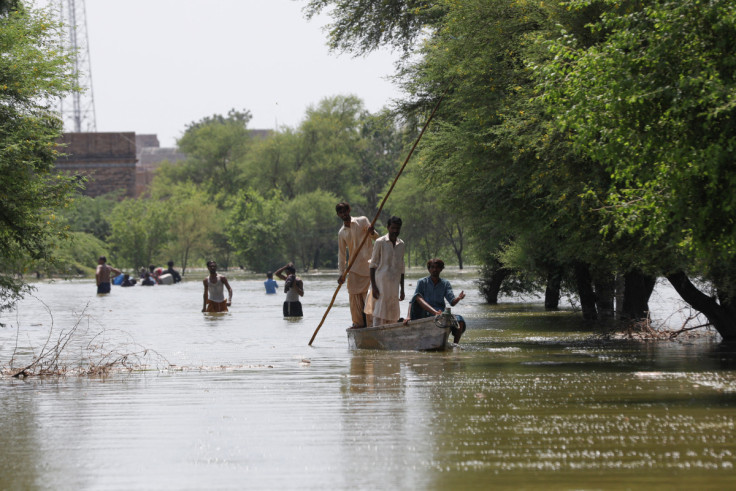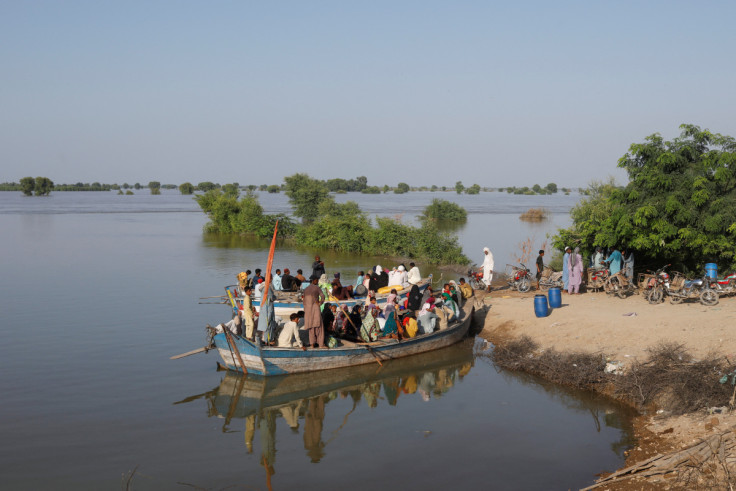'Global Crisis, Global Response': U.N. Chief Urges Support For Flood-hit Pakistan

U.N. Secretary-General Antonio Guterres on Saturday visited several areas of Pakistan ravaged by floods, calling for increased global financial support at the end of a two-day trip aimed at raising awareness of the disaster.
Record monsoon rains and glacier melt in northern mountains have triggered floods that have killed more than 1,391 people, sweeping away houses, roads, railway tracks, bridges, livestock and crops.
Pakistan estimates the damage at $30 billion, and both the government and Guterres have blamed the flooding on climate change.
"Today it's Pakistan, tomorrow it could be your country wherever you live. This is a global crisis ... it requires a global response," Guterres told a news conference at the end of his visit.
Huge areas of the country are still under water and hundreds of thousands of people have been forced from their homes. The government says the lives of nearly 33 million people have been disrupted.
Residents and health workers are becoming concerned about rising numbers of children suffering from gastroenteritis and other illnesses, with many forced to drink contaminated flood water.
After flying over vast swathes of inundated land, Guterres met people displaced by flooding in southern Pakistan.
"Unimaginable," he said as he surveyed the devastation from the air, seated next to Pakistani Prime Minister Shehbaz Sharif, in footage shared by the country's information minister.
Speaking to reporters later in the southern city of Karachi, Guterres said the international community needed to do more to help countries hit hardest by the effects of climate change, starting with Pakistan.
"I have seen many disasters around the world but I have never seen climate carnage of this scale," he said.
RECONSTRUCTION PLAN
Guterres said that as well as climate financing to help countries recover and adapt, G20 nations should boost their national greenhouse gas emission reduction targets every year.
He also called for new mechanisms for debt relief for climate-vulnerable countries such as Pakistan and said he was advocating for debt swaps in which the debtor nation, instead of continuing to make external debt payments, would make payments to finance climate projects at home.
"It is a question of justice, Pakistan is paying the price of something that was created by others," he said.
U.N. agencies have begun work on assesing the nation's needs to create a post-disaster reconstruction plan.
"Recovery and reconstruction must be climate resilient, it must start as soon as possible," said Knut Ostby, U.N. Development Programme Resident Representative in Pakistan told Reuters in a statement.
In July and August, Pakistan got 391 mm (15.4 inches) of rain, or nearly 190% more than the 30-year average. The southern province of Sindh has seen 466% more rain than average.


© Copyright Thomson Reuters 2024. All rights reserved.











